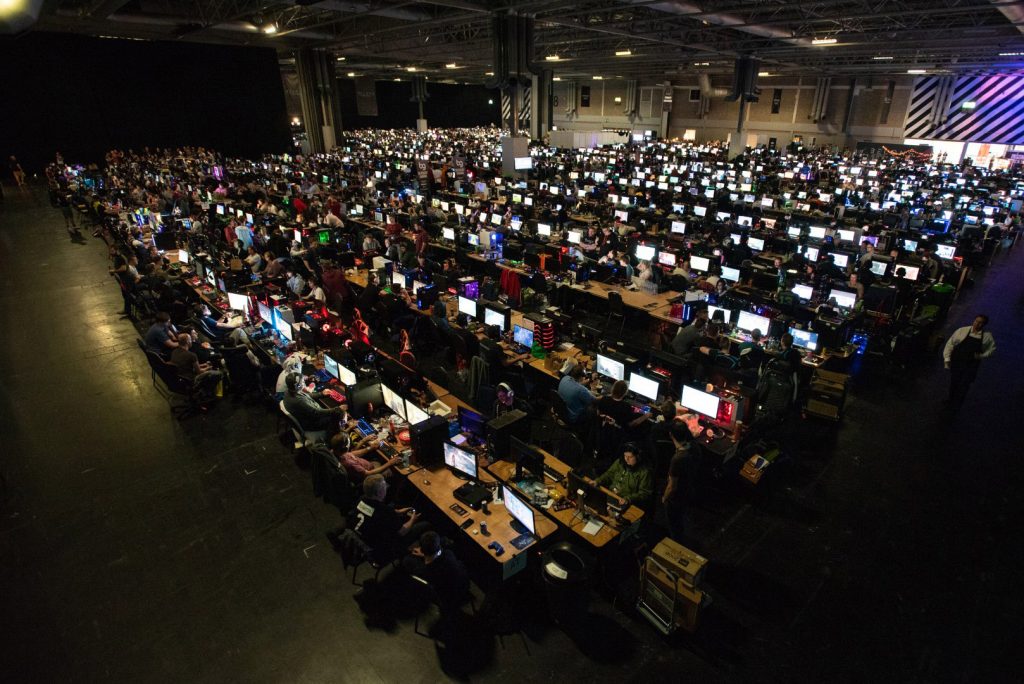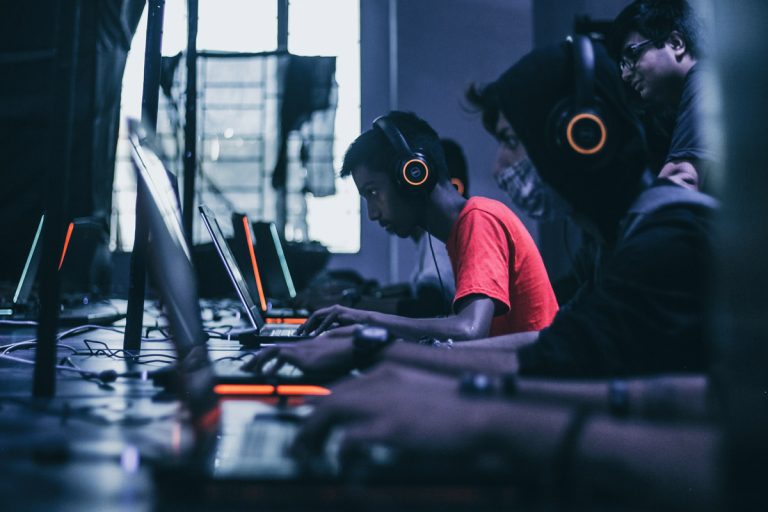The popularity of gaming and esports are forecast to grow rapidly in Saudi Arabia, with the market expected to reach $6.8 billion by 2030, according to new research.
A report by Boston Consulting Group (BCG) said the market is set to grow at an average compound annual growth rate (CAGR) of 22 percent – up from $959 million in 2020.
It said that with substantial revenue potential, high-quality jobs creation, various reputational benefits, and approximately three billion active participants, the gaming and esports industry is sure to provide “rich opportunities for players and governments alike” over the coming decade – with Saudi Arabia poised to take a leading role on the global stage.
BCG said the kingdom is currently home to 23.5 million gaming enthusiasts, equivalent to 67 percent of the national population.
Moreover, 90 percent of this segment – 21.1 million –already play esports titles on a semi-pro or amateur basis, with 100 professional esports players pursuing fulltime careers.
“From a Saudi standpoint, these growth projections undoubtedly bode well for the local gaming and esports community,” said Povilas Joniskis, partner, BCG.
“Despite the kingdom being a relatively recent entrant to this space, the industry is vibrant and fast-growing, nevertheless. Passionate gamers are primarily powering its growth and popularity at present, and it is more than feasible for them to embark on full-time careers and become involved on the international stage. Yet first, key barriers concerning aspiring Saudi competitors and professionals must be overcome.”
He added that while there is much potential in the Saudi gaming and esports industry, challenges also await due to the landscape being in an early development stage compared to other international markets – namely a lack of funding to compete full-time, scarcity of local competition, no clear pathway for gamers to become professional, and social stigma associated with choosing a career in gaming and esports.
“As such, the kingdom’s leadership now has an opportunity to capitalise on the widespread passion for gaming and translate the current high level of consumption intensity to a corresponding production intensity,” the BCG report noted.

The Saudi government’s future-focused Vision 2030 development plans is already supporting widespread sector development. One local example is Manga Productions, part of Misk Foundation, the government-sponsored non-profit organisation focused on cultivating youth as stewards of the region’s economy.
Manga Productions is providing funding and financial support, as well participating in education and talent attraction efforts.
The Ministry of Communications and Information Technology (MCIT) and DigiPen, the world-leading game design academy, also recently collaborated to launch the Game Changers program, which is designed to provide career pathways in the Saudi game industry.
“When examining gaming and esports in Saudi Arabia, we see interest in the industry growing among the government and less traditional business players alike,” added Joniskis. “By focusing on areas for improvement and approving the necessary investments across specific segments, the kingdom’s economy, reputation, jobs market, and talent pool all stand to reap the rewards.”How Saudi Arabia could be a global leader in gaming, esports by 2030
Boston Consulting Group says the market is set to grow at an average compound annual growth rate of 22%
The popularity of gaming and esports are forecast to grow rapidlyin Saudi Arabia, with the market expected to reach $6.8 billion by 2030, according to new research.

A report by Boston Consulting Group (BCG) said the market is set to grow at an average compound annual growth rate (CAGR) of 22 percent – up from $959 million in 2020.
It said that with substantial revenue potential, high-quality jobs creation, various reputational benefits, and approximately three billion active participants, the gaming and esports industry is sure to provide “rich opportunities for players and governments alike” over the coming decade – with Saudi Arabia poised to take a leading role on the global stage.
BCG said the kingdom is currently home to 23.5 million gaming enthusiasts, equivalent to 67 percent of the national population.
Moreover, 90 percent of this segment – 21.1 million –already play esports titles on a semi-pro or amateur basis, with 100 professional esports players pursuing fulltime careers.
“From a Saudi standpoint, these growth projections undoubtedly bode well for the local gaming and esports community,” said Povilas Joniskis, partner, BCG.
“Despite the kingdom being a relatively recent entrant to this space, the industry is vibrant and fast-growing, nevertheless. Passionate gamers are primarily powering its growth and popularity at present, and it is more than feasible for them to embark on full-time careers and become involved on the international stage. Yet first, key barriers concerning aspiring Saudi competitors and professionals must be overcome.”
He added that while there is much potential in the Saudi gaming and esports industry, challenges also await due to the landscape being in an early development stage compared to other international markets – namely a lack of funding to compete full-time, scarcity of local competition, no clear pathway for gamers to become professional, and social stigma associated with choosing a career in gaming and esports.
“As such, the kingdom’s leadership now has an opportunity to capitalise on the widespread passion for gaming and translate the current high level of consumption intensity to a corresponding production intensity,” the BCG report noted.
The Saudi government’s future-focused Vision 2030 development plans is already supporting widespread sector development. One local example is Manga Productions, part of Misk Foundation, the government-sponsored non-profit organisation focused on cultivating youth as stewards of the region’s economy.
Manga Productions is providing funding and financial support, as well participating in education and talent attraction efforts.
The Ministry of Communications and Information Technology (MCIT) and DigiPen, the world-leading game design academy, also recently collaborated to launch the Game Changers program, which is designed to provide career pathways in the Saudi game industry.
“When examining gaming and esports in Saudi Arabia, we see interest in the industry growing among the government and less traditional business players alike,” added Joniskis. “By focusing on areas for improvement and approving the necessary investments across specific segments, the kingdom’s economy, reputation, jobs market, and talent pool all stand to reap the rewards.”








